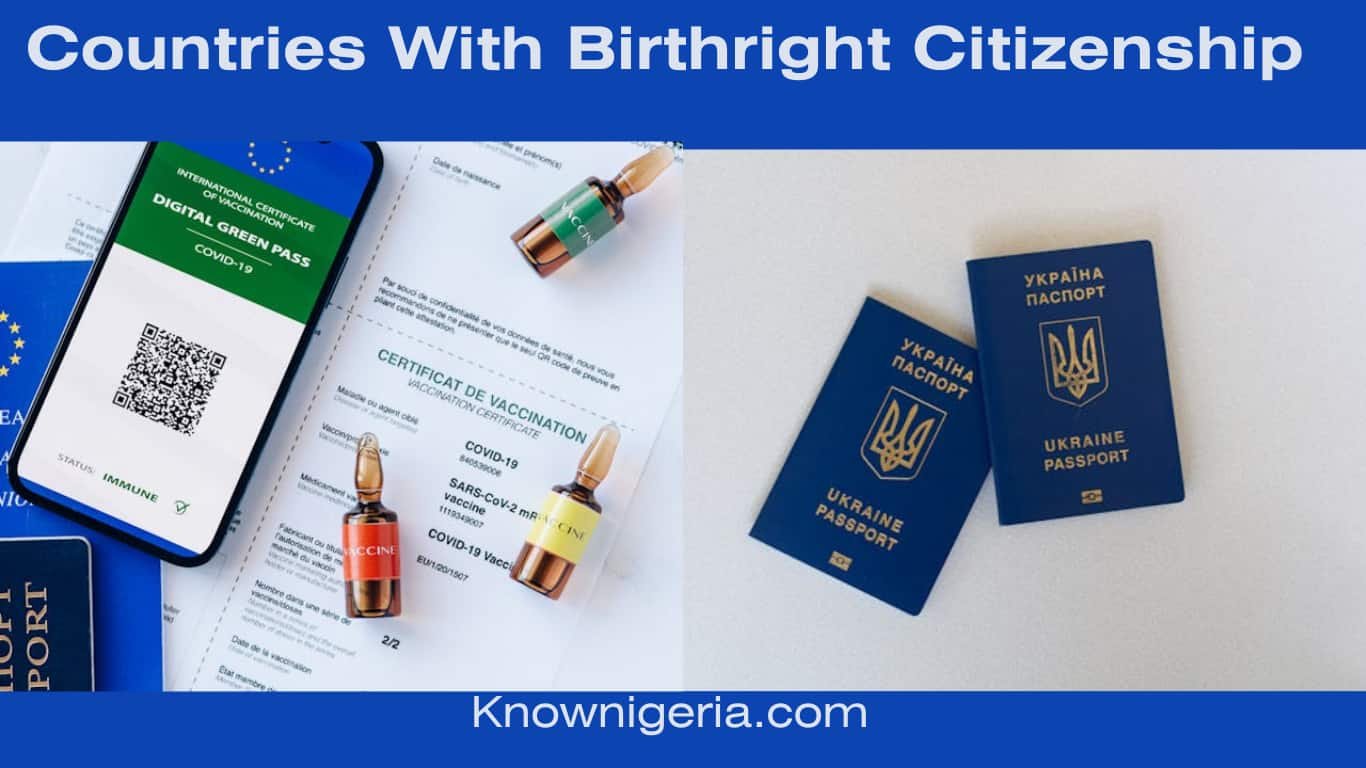Birthright citizenship is a legal governmental policy granted to any child born in that country. Citizenship is given irrespective of the nationality of the parents. Also, several countries have birthright citizenship.
Birthright citizenship is mostly common in the Americas but lesser in other countries. Other countries will continue to grant citizenship by birth. Therefore, In this article, we will list the top countries with birthright citizenship.
Table of Contents
Does Giving Birth In The United States Make You a Citizen?
No, giving birth in the US does not make you a citizen. However, your child will automatically get citizenship upon their birth. The Immigration and Nationality Act of 1965 (INA) provides that any person born in the United States is a citizen by birth, irrespective of their parent’s nationality.
A person born in the United States who is subject to the jurisdiction of the United States is a U.S. citizen at birth, including a child born to a member of an Indian, Aleutian, Eskimo, or other Aboriginal tribe.
What Are The Benefits Of Citizenship By Birth?
Citizenship by birth encourages assimilation into the culture and society of the country. Birthright citizenship grants individuals free access to certain rights and benefits that may not be available to noncitizens of the country.
Birthright citizenship allows individuals to automatically become citizens without going through a lengthy, confusing, and complicated process. Also, Citizenship by birth protects the rights of children who may not be able to obtain citizenship through other means. Citizenship by birth offers legal protection to enhance mobility and access to essential services.
What Are The Downsides Of Citizenship By Birth?
Citizenship by birth may lead to “Anchor babies”. This may serve as an illegal way of obtaining a child’s citizenship because the parents may use this opportunity to obtain citizenship for themselves.
Citizenship by birth may be seen as a form of encouragement for illegal immigration. This can happen when pregnant women travel to a country to give birth to take advantage of its birthright citizenship laws.
Top 11 Countries With Birthright Citizenship
Here are some of the countries with birthright citizenship:
1. United States

The United States is one of the countries where birth rights citizenship, “the principle of Jus soli or right of soil,” is being applied.
United States citizenship can be acquired by birthright in two situations: by the person’s birth within the United States territory (jus soli) or obtaining citizenship because at least one of their parents was a U.S. citizen at the time of the person’s birth (jus sanguinis).
2. Canada
Canada is one of the countries with birthright citizenship. The Canadian Citizenship Act of 1946 states that any individual born in Canada has the right to automatic citizenship. Your child born in Canada will obtain Canadian citizenship as their birthright.
They will have the legal right to reside in Canada or travel to the country at any desired time without a visa.
3. Mexico
Mexico gives unconditional birthright citizenship to any child born in Mexico. The Mexican constitution states that Mexican nationals by birth are people born on Mexican territory irrespective of their parent’s nationality.
Also, A child born in Mexico is a Mexican citizen from day one.
4. Jamaica
The Jamaica birthright nationality applies to a person who is born within the territory, except if the parents have diplomatic immunity or are a national of a country at war with Jamaica.
Under chapter two of the Jamaica Constitution, an individual born in Jamaica and a person born outside Jamaica of Jamaica parents have an automatic right to Jamaica citizenship.
5. Brazil

Brazil is another country with birthright citizenship. The unique fact about Brazil is that, when your child is born in Brazil, they automatically get Brazilian citizenship, and their parents are also granted an easier route to Brazilian residency.
So No matter the visa category you enter Brazil with, once you give birth, your child will become a citizen.
6. Venezuela
Venezuelans by birth cannot be deprived of their nationality. Venezuelan nationality law is the law governing the acquisition, loss, and transmission of Venezuelan citizenship. Thereby, it is one of the countries with birthright citizenship.
It is based on the principle of jus soli: any person who is born in Venezuela has access to obtaining Venezuelan citizenship by birth, regardless of parents’ status or nationality.
7. Grenade
Grenadian nationality is typically obtained either on the principle of jus soli, which means that birth in Grenade, or under the the rules of jus sanguinis which means by birth abroad by a parent with Grenadian nationality. It is among the top countries with birthright citizenship.
Grenade has dual citizenship, and the country does not specify any prohibitions or requirements concerning dual citizenship for persons either emigrating to the island or seeking to obtain another citizenship.
8. Cuba
Cuba is another country with birthright citizenship. Cuban nationality is either obtained on the principle of jus soli, i.e., by birth in Cuba, or under the principles of jus sanguinis, that is by birth abroad, by a parent with Cuban Nationality.
No 33 of the Cuban constitution states that Citizenship is acquired by birth or naturalization. Citizenship can also be granted to a permanent resident who has lived in the country for a given period through naturalization.
9. Tanzania
Tanzania is one of the countries that offers birth rights citizenship to anyone born in the United Republic of Tanzania or after Union Day.
If an individual was born and his/her parents are or were citizens of the United Republic of Tanzania is considered a citizen. Tanzania’s Nationality is typically obtained under the principle of jus soli or jus sanguinis.
10. Trinidad and Tobago

Trinidad and Tobago nationality is typically obtained either through the principle of jus soli or under the rules of jus sanguinis.
According to the Government of Trinidad and Tobago, 1 Subject to subsection 2 states that every person born in Trinidad and Tobago after the commencement of this constitution shall become a citizen of Trinidad and Tobago at the date of his birth.
11. Barbados
Barbadians may obtain citizenship/ nationality through birth, registration, or naturalization. Dual citizenship is recognized in Barbados. You may not be required to renounce your previous nationality to become a citizen of Barbados.
Barbadian citizenship is typically obtained under the rules of jus sanguinis, i.e., by birth to a father or, in some cases, a mother with Barbadian nationality.
What Does Birthright Citizenship Mean?
Birthright citizenship means that “All persons born in the country, and subject to the jurisdiction thereof, are citizens of the country and of the state wherein they reside. Generally, there are two forms of birthright citizenship, such as ancestral-based citizenship and birth-based citizenship.
What Is The Meaning Of Jus Soli?
Jus Soli means the right of soil. This signifies the right of any individual born in the territory of a state to citizenship or nationality.
Conclusion
Birthright citizenship enables individuals to become citizens without going through a lengthy, confusing, and complicated process. It also protects the rights of children who may not be able to obtain citizenship through other means. This article has listed the top countries with birthright citizenship, and we hope it is helpful to your search.
Reference
- Riftrust.com
- Americanimmigrationcouncil.com
- immigration.gov.bb










